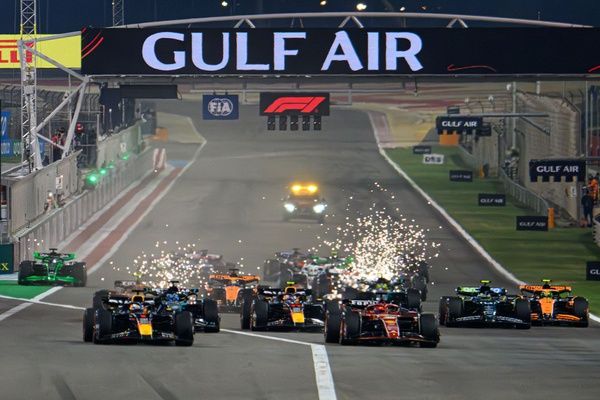The show car origins behind Red Bull's fake RB18
Red Bull built up its RB18 launch as a new car reveal but hopes of a first look at a proper 2022 Formula 1 challenger quickly fell flat.
Giorgio Piola's F1 technical analysis
Giorgio Piola is the preeminent Formula 1 technical journalist. Born in Genoa, Italy, Giorgio has covered the F1 World Championship since 1969, producing thousands of illustrations that have been reproduced in the world’s most prestigious motor racing publications.
Rather than it being the machine that Max Verstappen and Sergio Perez will take into battle this season, it was simply a modified version of an F1 show car concept that has been shown off for months.
Team boss Christian Horner all but admitted that the ‘RB18’ on display at the launch was not going to be the same when it gets seen at the grands prix.
“By the time we get to the first race, the RB18 won’t look much like it looks today,” he said. “The evolution will be very quick as we progress through the season.”
But there was no need for much subterfuge about what was on show, because it was fairly obvious from looking at the ‘RB18’ design that it was based on the show car geometry that FOM had made available to teams for use in promotional and marketing work.
There have been numerous versions of the show car and renders produced by F1 in order to tease this new generation of machinery. They are not all identical, with the likes of the front wing, nose and sidepods all altered slightly to show how the regulations might offer us some variation up and down the grid.

Red Bull Racing RB18
Photo by: Red Bull Content Pool

F1 2022 car
Photo by: Formula 1
As you can see from the side-by-side images (above) the Red Bull shares a kinship in terms of the sidepod design with one of the renders presented alongside the physical car shown at Silverstone last season.
The hexagonal roll hoop, lack of DRS on display, floor shape and rear wing design are also closely matched.
However, one difference is that the FOM render has a version of the front wing with the maximum of four elements as the latest rules allow – while the Red Bull version is the older three-element regulation.
Although F1 hasn’t used a three-element version extensively in its own marketing of the new cars, it did have one at its own headquarters as has been spotted on social media.
We are yet to see the RB18 then, meaning there will now be even more scrutiny when the car emerges at the first pre-season test in Barcelona. There remains an awful lot of intrigue about what the Milton Keynes-based team will come up with – especially with the key design aspects.
One main area of interest for many about the 2022 design is the suspension choices – something teams are being quite secretive about.
While there has been speculation that some of Red Bull’s rivals could be switching to pull-rod suspension at the front of their cars, Red Bull could actually be going the other way and make a switch in the opposite direction at the rear.
One possibility that teams have been looking at, and which could feature on the Red Bull, is a push-rod rear suspension to help make gains from the design of the underfloor and diffuser areas.

Red Bull RB5 rear detail
Photo by: Giorgio Piola
Such a move would be in stark contrast to when Red Bull reintroduced the pull-rod layout at the rear of the RB5 when F1 last had a major shake-up of the aerodynamic regulations in 2009.
The switch by Red Bull back then represented a must-have move for the design of every car that followed, as the other teams quickly realised that the layout suited the prevailing regulations.
However, on that specific occasion, it did cause Red Bull some issues when it realised it must also adopt the double diffuser that would-be champions Brawn GP had installed.

Red Bull RB5 2009 top view comparison with Brawn BGP001
Photo by: Giorgio Piola
Be part of the Autosport community
Join the conversationShare Or Save This Story
Related video
Subscribe and access Autosport.com with your ad-blocker.
From Formula 1 to MotoGP we report straight from the paddock because we love our sport, just like you. In order to keep delivering our expert journalism, our website uses advertising. Still, we want to give you the opportunity to enjoy an ad-free and tracker-free website and to continue using your adblocker.


















Top Comments